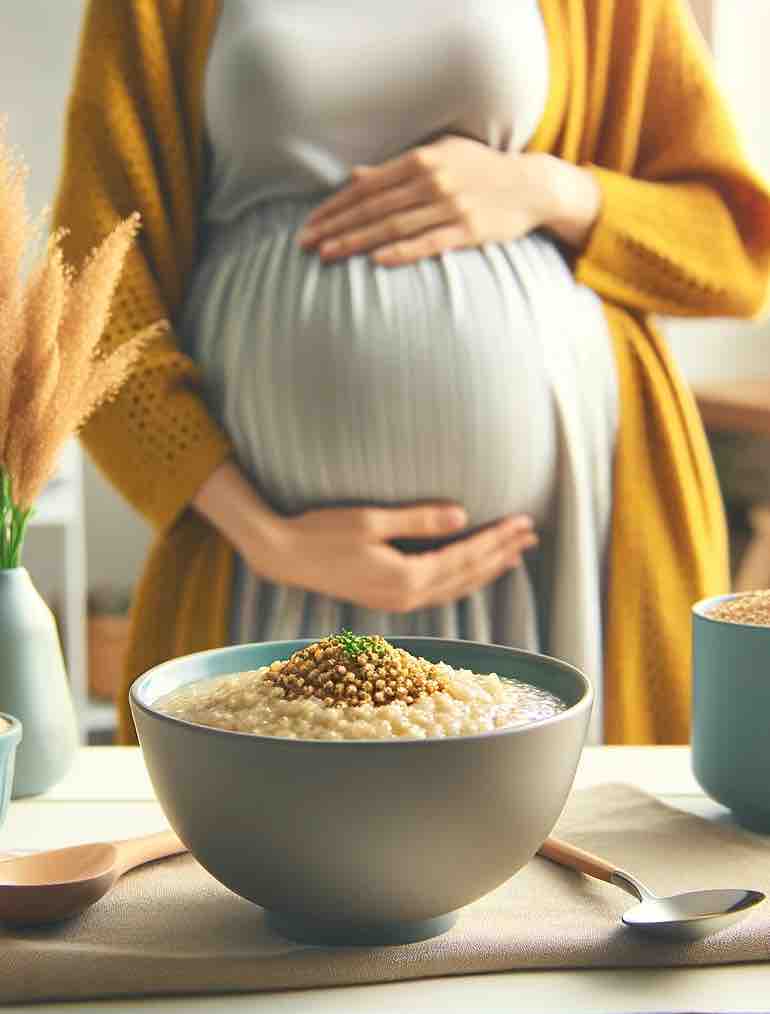
Pregnancy brings many dietary questions, and one of the most common concerns is about eating sushi. This beloved culinary art form, known for its vinegared rice, fresh fish, and various other ingredients, poses a particular dilemma for expectant mothers. This comprehensive guide aims to address the concerns, debunk myths, and provide insights into how you can enjoy sushi safely during pregnancy.
Understanding Sushi in the Context of Pregnancy
- Myth Busting: Not Just Raw Fish: One major misconception is that sushi only consists of raw fish. Modern sushi offers a variety of cooked and vegetarian options that are not only safe but also nutritious and delicious for pregnant women.
- Mercury Levels in Fish: While some fish used in sushi may contain high levels of mercury, there are many low-mercury options like salmon, shrimp, and trout. These choices provide essential omega-3 fatty acids beneficial for fetal development, without the risk of mercury exposure.
- Safe Sushi Choices:
- Cooked Sushi Rolls: Options like cooked crab, shrimp, and eel rolls are safe and offer a delightful taste experience.
- Vegetarian Rolls: Avocado, cucumber, sweet potato rolls are not only safe but also packed with nutrients.
- Low-Mercury Fish: Opt for sushi made with salmon or trout to enjoy the benefits of fish without the risks.
- Approach Raw Fish Sushi with Caution: If opting for raw fish sushi, choose low-mercury varieties and ensure they are sourced from reputable places that use proper freezing techniques to reduce parasite risks.
- Making Sushi at Home: For those who love cooking, making sushi at home can be a fun and safe option. Focus on fresh ingredients, proper food handling, and try cooked fillings or vegetarian options.
Addressing Common Concerns
- Listeria and Food Safety: Although sushi does have a higher potential for listeria contamination, selecting cooked options and dining at reputable establishments significantly reduces this risk.
- Omega-3 Fatty Acids Benefits: Essential for fetal brain and vision development, omega-3s are abundant in low-mercury fish like salmon and trout, making them a great choice in sushi for pregnant women.
The Bottom Line on Sushi and Pregnancy
Enjoying sushi during pregnancy can be a safe and delightful experience with mindful choices. Modern sushi offers a variety of options beyond raw fish, allowing expectant mothers to indulge without sacrificing safety. Informed decisions, guided by professional advice, ensure a satisfying culinary journey for both you and your baby.
10 FAQs About Sushi and Pregnancy
- Is it safe to eat sushi during pregnancy? Yes, it’s generally safe if you opt for cooked or vegetarian sushi options, and avoid high-mercury fish.
- Can I eat sushi with raw fish while pregnant? It’s advisable to avoid raw fish due to the risk of bacterial and parasitic infections. If choosing raw fish, opt for low-mercury fish and consume it in moderation.
- What are the risks of eating sushi with raw fish during pregnancy? The main risks include exposure to harmful bacteria, parasites, and mercury contamination.
- Are there sushi options that are safe for pregnant women? Yes, many sushi restaurants offer rolls made with cooked seafood or vegetarian ingredients that are safe for expectant mothers.
- Can I eat sushi made with high-mercury fish during pregnancy? It’s best to avoid sushi with high-mercury fish, like shark, swordfish, and king mackerel, to prevent potential harm to fetal development.
- Can I make sushi at home while pregnant? Yes, making sushi at home can be safe. Use fresh ingredients, focusing on cooked fillings and low-mercury fish, and ensure proper food handling.
- Is sushi with cooked seafood safe during pregnancy? Yes, sushi rolls with fully cooked seafood are considered safe for pregnant women.
- What should I consider when ordering sushi from a restaurant during pregnancy? Choose reputable restaurants that prioritize food safety and opt for cooked or vegetarian sushi options.
- How can sushi benefit my pregnancy diet? Sushi can be a good source of omega-3 fatty acids, which are beneficial for fetal brain and vision development, especially when made with low-mercury fish.
- Are there any vegetarian sushi options that are healthy during pregnancy? Yes, vegetarian sushi options like avocado rolls, cucumber rolls, and those with cooked vegetables are both safe and nutritious for pregnant women.
Blog Tags
sushi, pregnancy, dietary safety, cooked sushi, vegetarian sushi, omega-3 fatty acids, food safety, healthy eating, prenatal nutrition, low-mercury fish













